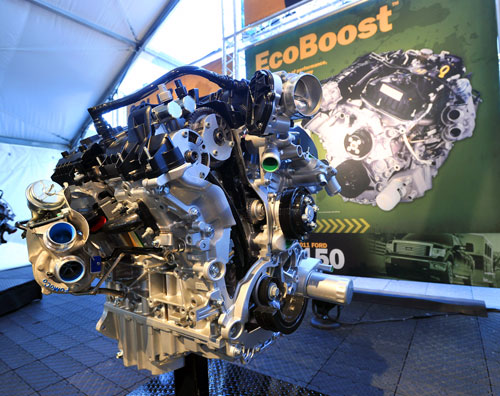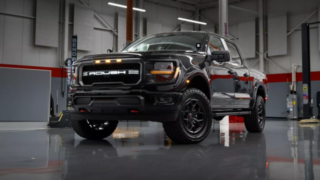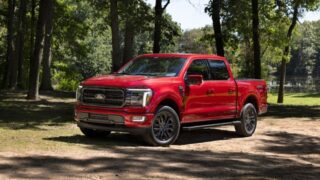Ford Trucks to Get 62 MPG?

If President Obama and the state of California adopt higher gas mileage requirements, Ford’s trucks, according to some academics, may be required to get as much as 62 MPG by 2025! While implementing this engineering feat may sound like a fanciful dream, the Ford Motor Company has been working on building powerful, fuel efficient fossil-fuel burning vehicles since 2006. Ford’s EcoBoost Technology has been largely responsible for their ability to produce trucks that are fuel-efficient. EcoBoost technologies include direct injection systems, turbocharging, and twin independent variable camshaft timing (Ti-VCT) engines.
However, EcoBoost is just one part of the equation. The second part of the equation responsible for increasing fuel efficiency are the new types of transmissions Ford is placing in their trucks. Ford’s new model diesel trucks incorporate Alison transmissions. Alison is a highly respected company that is committed to designing and manufacturing transmissions that will enhance fuel economy and still provide the power and torque required by a work-truck. Indeed, Ford has invested a considerable amount of money on the design of a new eight speed automatic transmission. This transmission is exclusively Ford’s own design, and is going to be built in the United States starting in December 2011. According to a resent Ford press release, their eight speed transmission will provide a 2 to 6 percent increase in fuel efficiency over their six speed transmission.
The combined effects of EcoBoost and these enhanced transmissions have allowed Ford to produce trucks incorporating engines with smaller displacements that have maintained their power and torque levels. The Ford F-150’s EcoBoost V6 engine can attain 365 HP at 420 foot-pounds of torque, which is comparable to the naturally aspirated V8 it replaced. In fact, because this v6 engine sports twin compact turbochargers, it produces 15% fewer carbon dioxide emissions, yields nearly 20% higher fuel efficiency, and produces greater torque and horsepower than the outdated V8. Still more impressive are the MPG numbers for the Ford F-150 integrating a 3.7 liter V-6 engine with EcoBoost to the 2011 Chevrolet Silverado Hybrid. According to EPA estimates, the Ford achieves 16mpg city and 23mpg highway, while the Chevy hybrid receives 20mpg city and 23mpg highway.
Another way Ford is striving to obtain increased fuel economy is by employing the use of diesel engines. Ford has teamed up with Cummins to provide diesel engine work-trucks that are powerful and fuel-efficient as well. Innovations in diesel engine design provide vehicles with engines that produce lower emissions than gasoline burning engines, and are up to 30% more fuel-efficient.
But are innovations in engine design, transmission design, and other vehicle components enough to produce fossil fuel burning engines that can obtain 62 MPG? With so much riding on this question, Ford has also invested in developing new hybrid technologies that are scheduled to be designed and built in the United States.
Ford’s innovative ideas have already proven that classic fuel burning vehicles can compete with today’s hybrids. Nevertheless, if emission standards and fuel efficiency requirements increase as expected, we may soon see an explosion of hybrid trucks in order to reach the 62 MPG goal.




